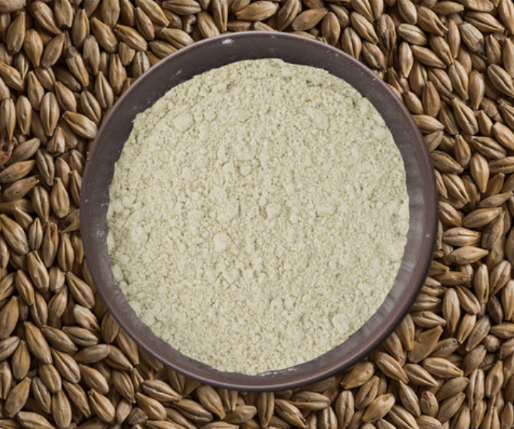In the quest for sustainable and innovative solutions in the food industry, one ingredient stands out: malted barley flour. This versatile product, derived from germinated barley grains, is gaining recognition for its unique benefits in baking applications.

Malted barley flour not only enhances the flavor profile of baked goods but also improves their texture and appearance. Its natural enzymes aid in fermentation, making dough more workable and elastic. Moreover, it's a source of essential nutrients, contributing to the health-conscious trend in food production.
But the benefits of malted barley flour extend beyond its culinary attributes. When sourced from a supplier committed to sustainable practices, like Castle Group, it becomes a key component in achieving sustainability goals. Castle Group's malted barley flour is produced using renewable energy sources, aligning with the increasing demand for eco-friendly food production.
In this article, we delve into the benefits of using malted barley flour, highlighting its role in baking, nutrition, and sustainable practices.
Understanding Malted Barley Flour
Malted barley flour is a unique ingredient produced through an intriguing process. The journey starts with the germination of barley grains. This process enhances the grains, which are then dried and finely ground into flour.
The transformation of barley to malted flour is not just about texture. Germination activates enzymes that play crucial roles in food production. These enzymes break down starches into sugars, significantly aiding in fermentation.
One remarkable feature of malted barley flour is its ability to enrich flavors. It imparts a distinct, rich taste to baked goods, setting them apart in a crowded market. Artisanal bakers often value this rich, malty flavor for creating gourmet products.
Nutritionally, malted barley flour is a boon. It is packed with essential nutrients, including fibers, proteins, and vitamins. These nutrients make it an excellent addition to health-focused baking.
Castle Group's production methods further elevate malted barley flour. By using sustainable practices, they ensure that this powerful ingredient is environmentally friendly. In the next sections, we will delve deeper into its advantages and Castle Group’s commitment to sustainability.

The Baking Advantages of Malted Barley Flour
Malted barley flour provides numerous benefits to the baking industry. Its unique properties make it a go-to choice for bakers seeking enhanced performance. The flour's ability to influence dough texture is particularly noteworthy.
This special flour improves dough elasticity and workability. Bakers find it easier to manage dough that incorporates malted barley flour, resulting in more consistent products. Elastic doughs contribute significantly to the quality of baked goods, ensuring superior end results.
One cannot overlook the role of malted barley flour in fermentation. The natural enzymes present assist in breaking down starches. This process produces sugars that feed yeast, fostering better fermentation and lift.
Bakers appreciate how this flour aids in achieving a desirable crust color. The enhanced caramelization process yields attractive, golden-brown crusts. An appealing crust not only enhances visual appeal but also improves the overall sensory experience.
Along with these advantages, malted barley flour functions as a natural dough conditioner. This reduces the need for artificial additives. It promotes a cleaner label, which aligns with the industry's growing demand for transparency.
The flavor profile of baked goods benefits significantly as well. Malted barley flour provides a rich, malty taste, adding a unique dimension to baked items. This sets products apart in a competitive market, satisfying consumers' desires for exceptional flavors.
To summarize, the baking advantages of malted barley flour include:
- Improved dough elasticity
- Enhanced fermentation
- Attractive crust color
- Natural dough conditioning
- Rich flavor profile
Moreover, products using malted barley flour tend to have an extended shelf life. The improved texture and moisture retention contribute to this longevity. Bakers can thus enjoy reduced spoilage and waste, offering operational efficiencies.
Given these benefits, incorporating malted barley flour into baking operations can elevate the quality and marketability of products. This versatile ingredient not only meets traditional baking needs but also addresses modern consumer expectations.
Nutritional Profile of Malted Barley Flour
Malted barley flour stands out as a nutrient-rich ingredient in the food industry. It is packed with essential nutrients that contribute to a balanced diet. This includes fiber, protein, and several vitamins.
Fiber is crucial for digestive health. Malted barley flour offers a significant amount of dietary fiber, supporting regular digestion. It aids in maintaining a healthy digestive system, something increasingly sought after by health-conscious consumers.
Protein content is another noteworthy aspect of malted barley flour. Proteins are the building blocks of the body and vital for muscle maintenance. This makes the flour a valuable addition to various diets, ensuring consumers meet their nutritional requirements.
The presence of vitamins in malted barley flour enhances its appeal. Vitamins found include several B vitamins, which play key roles in energy production and brain function. These nutrients make the flour a great choice for fortifying baked goods.
Furthermore, malted barley flour can aid in sustaining energy levels. The natural sugars formed during the malting process provide a source of readily available energy. This makes it especially beneficial in functional and energy-focused food products.
Malted Barley Flour in Sustainable Baking Practices
In the pursuit of sustainability, malted barley flour proves essential. Its production aligns closely with eco-friendly practices, making it a sustainable choice for bakers. This ingredient contributes to responsible sourcing in the baking industry.
Many bakeries are shifting towards sustainable ingredients. Malted barley flour supports this trend by reducing environmental impact. Its use helps in decreasing reliance on non-renewable resources.
The flour’s natural enzymes enhance baking efficiency. This can reduce the need for additional ingredients or processing steps. As a result, bakeries can minimize waste and energy use, leading to more sustainable operations.
Using malted barley flour also supports clean-label demands. Consumers increasingly prefer products with simple, recognizable ingredients. This flour fits perfectly into these demands, offering transparency and quality.
Bakeries that incorporate malted barley flour often notice improvements in product quality. Enhanced flavor, texture, and shelf life are just a few benefits. These qualities can position bakeries favorably in the market.
Environmental impacts of traditional baking processes are significant. Malted barley flour offers a more sustainable alternative, reducing the carbon footprint of baked goods. This aligns with growing consumer awareness around sustainability.
Furthermore, the circular economy benefits from malted barley flour. By maximizing resource use, it supports long-term ecological balance. This aligns with broader industry goals of reducing waste and promoting sustainability.
Adopting malted barley flour is more than a trend. It's a responsible choice that aligns with global sustainability goals. In the baking sector, it represents a step forward in environmental stewardship.
The Economic and Operational Benefits of Malted Barley Flour
Malted barley flour offers tangible economic advantages. Its natural properties can reduce the need for additional ingredients. This aspect translates to cost savings in the bakery industry.
The flour's enzymatic activity enhances dough efficiency. It improves fermentation, leading to greater volume and yield. Increased yield means more product without extra material.
With malted barley flour, bakeries can streamline operations. Simplified ingredient lists reduce inventory costs. It decreases the need for artificial additives, which cuts expenses further.
The operational benefits extend to product quality. Malted barley flour enhances flavor and texture naturally. Better products improve customer satisfaction and brand reputation.
A simple list shows how malted barley flour impacts bakery economics:
- Reduced reliance on additives
- Increased dough yield and efficiency
- Improved product quality and customer appeal
These factors contribute to both immediate and long-term savings. Businesses gain financially while providing superior bakery items. The use of malted barley flour is a strategic operational choice.
Moreover, choosing Castle Group's malted barley flour boosts eco-friendly initiatives. Combining sustainability with operational efficiency offers dual benefits. Businesses see improvements in both their bottom line and environmental impact.
Meeting Consumer and Regulatory Demands
In today's market, consumer demand leans heavily towards sustainability. Shoppers prioritize eco-friendly and health-focused products. Malted barley flour aligns with these demands through its natural appeal.
Regulatory bodies also push for sustainable food production. Compliance with these regulations is essential for any business. Malted barley flour supports this compliance with its clean label attributes.
Using malted barley flour helps brands meet clean-label and non-GMO criteria. It provides transparency, which is essential for building trust. This trust is crucial in maintaining a competitive edge in the market.
The ingredient's health benefits further satisfy consumer expectations. Its nutrient content appeals to the growing health-conscious consumer base. Offering products with malted barley flour can boost market appeal.
Finally, opting for sustainable ingredients like malted barley flour enhances brand reputation. Companies show commitment to environmental and social governance. This commitment resonates well with both consumers and regulatory authorities.
Looking Ahead: Malted Barley Flour and the Future of Baking
Malted barley flour represents an exciting opportunity for the future of baking. As consumer preferences evolve, the demand for nutritious and flavorful ingredients is rising. This flour meets these needs with a rich taste and health benefits.
The trend toward plant-based and sustainable foods isn't slowing down. Malted barley flour aligns perfectly with these movements. Its production process is eco-friendly, reinforcing its sustainability credentials.
Bakers are constantly innovating to meet emerging food trends. Malted barley flour's versatility allows for the creation of new and unique baked goods. It supports experimentation in both traditional and new baking techniques.
Furthermore, regulatory landscapes are changing to promote healthier diets and sustainable practices. Using malted barley flour helps businesses stay compliant and competitive in this shifting environment.
Looking forward, embracing malted barley flour can transform the baking industry. It offers a pathway to satisfy modern consumers while also advancing sustainable business goals.
Partner with Castle Group to integrate malted barley flour into your products. Embrace the future of baking with innovative, sustainable solutions.
